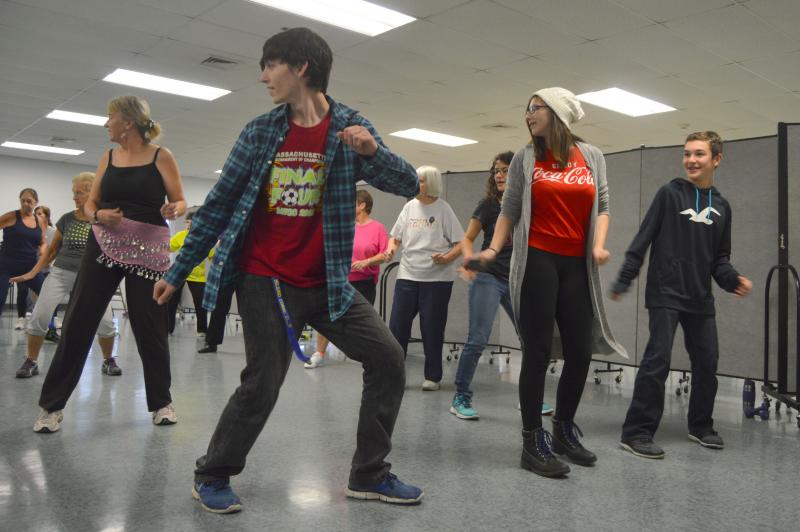Rotary Club, teenagers collaborate to help the elderly
During a weather emergency, knowledge is power. But accessing up-to-date information isn’t always an option for some members of the community.
This winter, Dartmouth’s Rotary Club wants to ensure that seniors will be able to stay informed even in extreme storms.
“A few years ago we lost power here in Dartmouth, and everything was shut down including the cable,” said Dr. Cynthia Marland, head of DCTV and a member of the Rotary Club. “I know that seniors were listening to their radios.”
She said that, during the storm, it was challenging to know what streets were open or when power would be restored. Town Administrator David Cressman had gone on WBSM several times for updates, which Marland said was helpful for seniors.
Over the summer, the club was able to secure a matching grant from Rotary International for a community project, and so the group purchased 126 transistor radios for low-income seniors.
“With these radios, [Cressman] is going to be more engaged and talk to the station by cellphone and communicate with the town,” said Marland.
The Rotary Club also saw the community project as a means to link two disparate groups: the elderly and high school students.
Teresa Hamm, who is a member of the Rotary and a member of the Youth Commission, wanted to “reenergize” the club’s collaborative projects. Hamm reached out to Dartmouth High School to find students capable of programming the radios.
“The overarching goal is for students to be involved in community service and internalize that we’re all one big community and we can do little things to improve everybody’s quality of life,” said Hamm.
High school teacher Joshua Moulding had a group of his top media students – four seniors and two freshmen – tackle the project. Austin Vincent, Kyle Lamontagne, Adriana Pacheco, Victoria Houde, Ashley Gwozdz and John Eaton spent about an hour on Thursday morning unpacking and processing all 126 radios.
“They’re putting in batteries, setting the times, programming WBSM as well as making sure the weather alerts are on,” said Moulding. “It will alert [seniors] for floods, tornados, things like that.”
After the students had finished the project, they toured the senior center to learn more about the services provided there. They even joined a Zumba class for a dance or two while waiting for a school bus to shuttle them back to class.
Marland said the students will also draft a one-page instruction sheet to help recipients with the new hardware. Thirty radios will be administered to the public through the Council on Aging’s holiday basket program. The baskets are distributed to indigent seniors and will be delivered by the Rotarians on Nov. 16. The remainder will be stored at the senior center.
“If someone fits the criteria – low income, no family involvement, afraid to be alone in case of emergency – give us a call, and we’ll get them a radio,” said Heather Sylvia, director of the Council on Aging.
“If we do have a weather emergency, we can screen the people who use the center and send them home with a radio,” she said.
Edward Pimental, the director of the Emergency Management Agency, said that, when the weather forecast looks particularly dire, he meets with the fire department, the police department and the Board of Health to plan.
He said the senior center on 628 Dartmouth St. is the first shelter the town opens in case of a weather emergency. The center has a generator, a food pantry and can house 100 citizens. The basement of two buildings at the center can be used to shelter dogs and cats separately.
If the weather looks bad, Pimental said Dartmouth residents can call the police department or check out DCTV for more information.
“If they need a ride, the police department will bring them here. Once the situation clears, we will provide a way for them to get back to their homes,” said Pimental.
He added, “We had one woman last year who came here and said, ‘This is wonderful. I’m having nice meals in a warm place, and I’m meeting new people.’”
Marland said that, because the senior center services hundreds of people, the 126 radios are just a “starting point.”
“In terms of communication, if we lose electricity and then the cable goes down, this program will allow people to hear an update,” said Marland.















